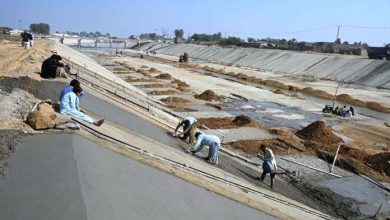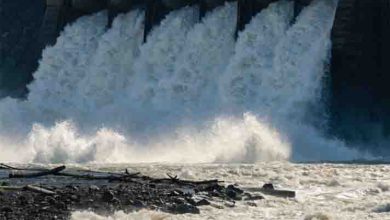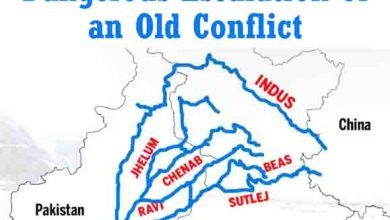Indus Waters Treaty Crisis 2025: Why the Suspension Spells Danger for South Asia
The suspension of the Indus Waters Treaty after the Pahalgam attack signals a dangerous shift in India-Pakistan relations. Explore what this means for regional water security, diplomacy, and the threat of war.
The Indus Waters Treaty (IWT), brokered by the World Bank in 1960, is one of the most successful water-sharing agreements in history. Signed between India and Pakistan, the treaty allocates the Eastern rivers (Ravi, Beas, Sutlej) to India and the Western rivers (Indus, Jhelum, Chenab) to Pakistan. Despite three wars and decades of hostility, the treaty remained operational—until now.
Why Was the Indus Waters Treaty Suspended in 2025?
On 24 April 2025, high-level Indian sources announced that the Indus Waters Treaty was in abeyance following a terrorist attack in Pahalgam two days earlier, which killed 25 Indian and one Nepali tourist. India claimed that Pakistan violated the treaty’s preamble, which emphasizes goodwill and neighborliness.
This unilateral move to suspend the IWT has no legal provision in the treaty, as emphasized in a 25 April meeting chaired by the Pakistani Prime Minister and attended by the three services chiefs and senior cabinet members.
“Water is a Vital National Interest of Pakistan… Any attempt to stop or divert the flow of water… will be considered an Act of War.” – Official Statement from Islamabad
Legal and Diplomatic Implications
The IWT is a legally binding international agreement under the purview of the World Bank. It does not permit unilateral suspension or abeyance by either party. India’s decision sets a dangerous precedent in international diplomacy, especially concerning transboundary water laws.
A 2005 U.S. diplomatic cable by Ambassador David Mulford warned that disputes over India’s Baglihar Dam could trigger the “worst-case scenario” for Islamabad and lead to war. That warning appears more relevant now than ever.
India’s Strategic Calculations and Opposition Response
The Indian military’s lackluster performance despite advanced Western weaponry, compared to Pakistan’s technical advantage sourced from China, has escalated the security debate within India.
Leader of the Opposition Rahul Gandhi urged Prime Minister Modi to convene a special parliamentary session, citing national security and diplomatic failures. His letter, gaining traction domestically and internationally, stresses the critical need for legislative oversight at a moment of escalating regional tension.
Pakistan’s National Response: “Act of War”
Pakistan’s leadership, military, and public have treated the treaty’s suspension as a declaration of economic warfare. With over 37% of the country’s workforce dependent on agriculture, the Western rivers are its lifeline. Any move to divert or stop their flow, especially in a time of drought, would be catastrophic.
“Our very survival rests with the IWT becoming functional again.” – Editorial in Pakistan’s leading daily
What’s at Stake for Pakistan?
The Indus Waters Treaty is not just a diplomatic agreement; it’s a matter of food security, economic stability, and national sovereignty. If India weaponizes water by:
- Stopping flows during dry seasons
- Releasing excess water during floods
- Building illegal dams on Western rivers
…the consequences for Pakistan could include:
- Food shortages
- Water scarcity
- Agricultural collapse
- Massive displacement
- Possible military retaliation
Pakistan’s 240 million citizens rely heavily on uninterrupted access to the Western rivers. The country is already facing economic and environmental stress, and further disruption could cause social and political unrest.
Path to Resolution: Talks or Tensions?
Bilateral negotiations are set to resume this week. Diplomatic experts insist that reviving the Indus Waters Treaty must be priority number one. Without the treaty’s restoration, any long-term peace or economic planning in the region becomes untenable.
India must realize that good neighborly relations cannot exist without mutual respect for binding agreements. Similarly, Pakistan must engage in constructive dialogue, ensuring accountability and transparent cooperation in curbing cross-border terrorism.
Both nations could benefit by involving neutral third parties such as:
- World Bank (treaty guarantor)
- United Nations
- Shanghai Cooperation Organization (SCO)
These platforms can provide diplomatic cover and encourage trust-building.
Conclusion: Water, War, and the Way Forward
The suspension of the Indus Waters Treaty in 2025 marks one of the gravest geopolitical shifts in South Asia’s post-Partition history. It is no longer a mere water-sharing deal—it is a litmus test for peace, diplomacy, and regional stability.
If India weaponizes water, it not only violates international law but invites irreversible consequences. If Pakistan does not secure this treaty’s revival, its food, economy, and sovereignty stand at risk.
The world must watch closely. A drop of water today may ignite a flood of consequences tomorrow.







